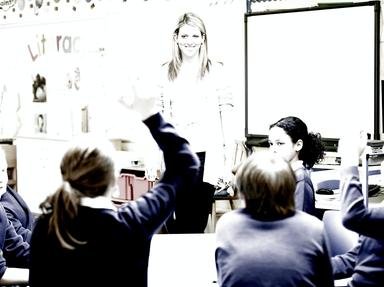Quiz Answer Key and Fun Facts
1. When do children in England have to start school?
2. In England, primary school is divided into Early Years Foundation Stage, Key Stage 1, and Key Stage 2. Which year groups are in Key Stage 2?
3. Every mainstream primary school has a SENCo. They are a teacher who has a particular role. What does the S in SENCo stand for?
4. Read Write Inc is a programme used by many schools in Phonics lessons. What is the main purpose of it?
5. According to Letters and Sounds, how many phonemes are in 'shout'?
6. Which Science topic was introduced to the Year 6 National Curriculum in 2014?
7. What does SMSC stand for?
8. Ofsted are feared by some teachers! What is the department's purpose?
9. Which of these does NOT come into safeguarding children?
10. All English schools are maintained by the state.
Source: Author
AcrylicInk
This quiz was reviewed by FunTrivia editor
bloomsby before going online.
Any errors found in FunTrivia content are routinely corrected through our feedback system.
